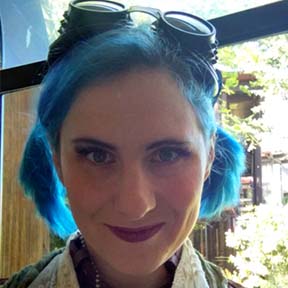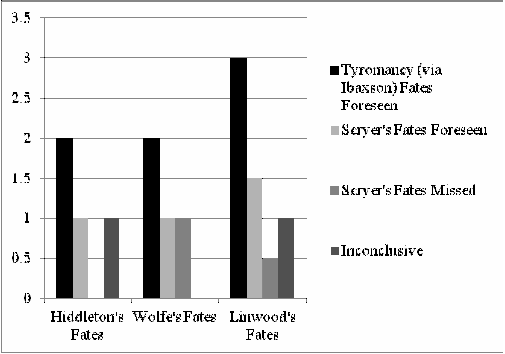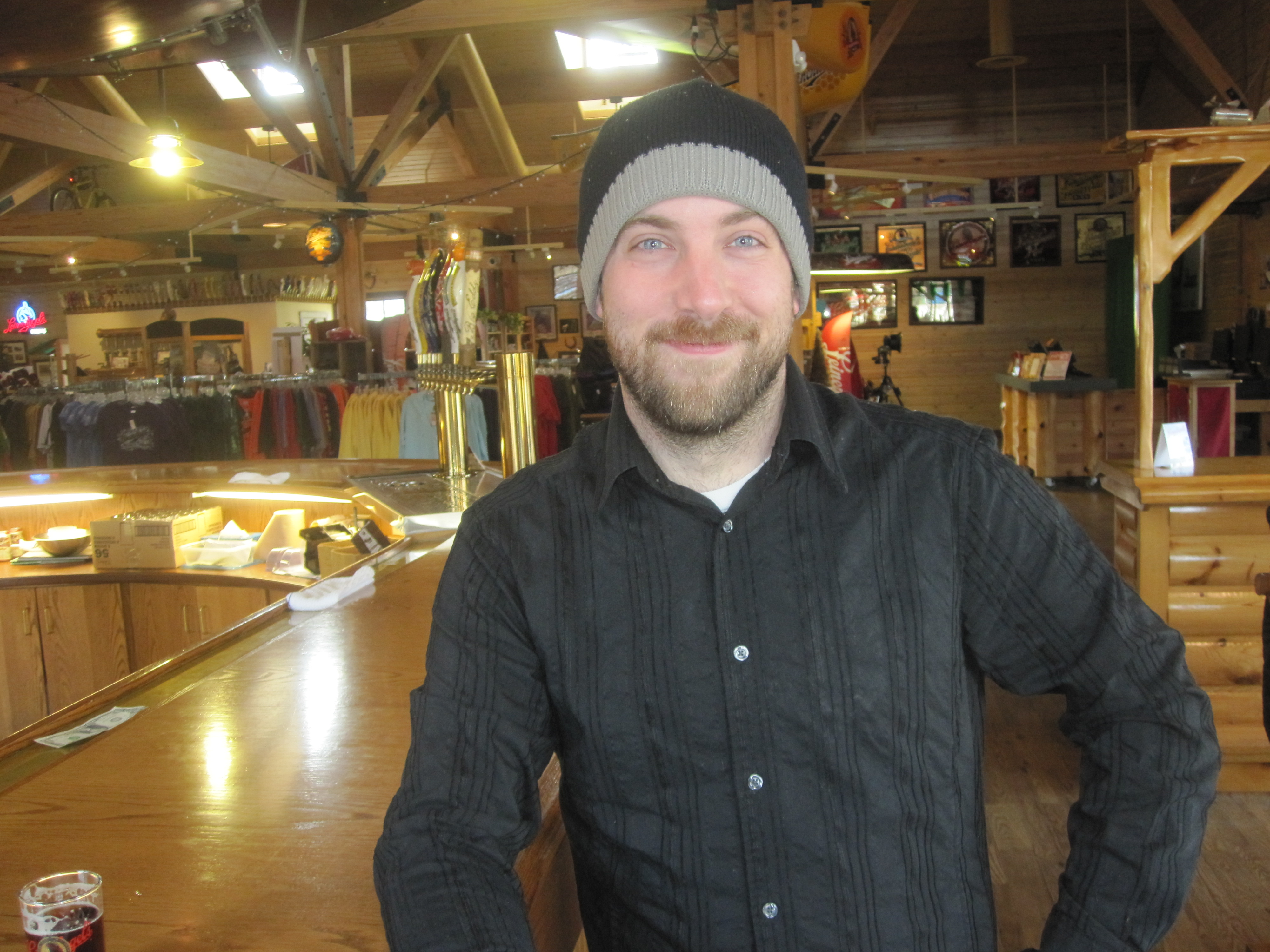Don’t think. Don’t feel. Concentrate on the work. Berend sliced under the unicorn’s scarlet hide. He worked swiftly to skin the beast while the pelt remained a vivid red. For a short time at dawn and dusk, a unicorn glowed red, and only during those few minutes could a blade pierce the animal’s hide. Normally, animals came to his butcher shop gutted, but with a unicorn that was impossible.
As he pulled the pelt back, he pondered the cuts that would come next. He’d have to remove the heart first—for the Hero.
Lined up on the stone table beside the unicorn, an array of tools waited. For now, the bone knife was all the job required. Berend’s hand paused under the unicorn’s jaw. The village shaman had already removed the horn, leaving a jagged circle of white bone. Around this circle and coating the muzzle was a thick splatter of human blood.
The blood of my only son.
Forcing thoughts of Ulfric from his mind, Berend focused on his work. He finished removing the precious hide, already darkening to the onyx black a unicorn took on at day’s end.
“Rhea!” Berend shouted before recalling that his daughter, along with his wife, were with the healer preparing Ulfric’s body.
His eyes filled with tears, obscuring the room. In front of him, the carcass wavered. And the rest of the stone-walled chamber blurred like a half-forgotten dream. He barely made out the faded paint on the wooden door or the unshuttered windows.
Stop! Keep working.
A few squares of butcher’s cloth lay over the display counter across the room, waiting for the flesh of the beast. And behind the counter was the cold-room’s door. He’d have to lug the carcass in there before the evening ended.
This was no way to mourn. He shouldn’t touch dead flesh for half a moon out of respect for Ulfric’s death. But no one in this village would understand a two-week break from the butcher.
If only I were home. Not this land forgotten by the ocean.
The constant ache in his right leg rarely let him forget why he’d relocated inland. With a gimp limb, he’d have been useless to his warfaring people and had wanted to find a new purpose. Here, far from the sea, he’d met a butcher’s daughter. And with her by his side, being an outsider hadn’t seemed too great a burden.
Berend turned back to the carcass. From amid his knives, he selected a bone saw.
With the full force of his weight, Berend sawed through the animal’s sternum. A scent of summer pollen and iron wafted from the cavity. Then, shunning tools, he trusted to his bare hands and cracked open the chest cavity.
Outside his shop, a burst of cheering filled the town square. Cheers for the man who’d slain the beast that had been terrorizing nearby towns for months. Cheers for Chariton, the Hero of the Mid-Kingdoms.
Berend gritted his teeth.
“Hero,” he sneered, and drove his thick-muscled arm between the unicorn’s ribs. His hand sank into the beast’s slick innards.
He carefully extracted and trimmed the heart. After crossing the room to the counter, he set the organ onto a square of butcher’s cloth.
A sob broke from the prison of his chest. His body hunched, shaking as loss washed over him.
Ulfric had been a good son. Uninterested in the family business, but strong-spirited.
Of late, his son had spent more and more time in the forest. Yet despite hunting so much more, he brought less and less game home. Had a sense of debt to the family driven him out there? They’d never needed the meat. Ulfric hadn’t needed to go into the woods.
“Papa?” Rhea’s soft voice preceded her young arms around him by mere seconds.
How did I miss them returning? Berend wiped his face with the back of his sleeve and straightened. His wife, Naiyah, stood in the doorway, looking gaunt. Her olive skin appeared waxy, and a leaf hung in the wild coils of her hair.
He wrapped his arm around Rhea. She leaned closer to him as he stroked her hair, black like her mother’s—like all the locals—rather than his own oaken brown. His daughter didn’t flinch at the dark blood coating his hands. At ten, half her brother’s age, she was already better with blood than Ulfric ever had been.
“As you asked, his body has been prepared to your custom.” Naiyah’s brown eyes stared past her husband and daughter at empty space.
“Thank you.” The words ground from Berend, bitter and cold. He didn’t feel thankful. It didn’t matter that Naiyah had agreed to anoint the body with salt and paste, or that she’d shaved him clean.
Ulfric’s bones would never make it to the distant ocean. He’d never board the White Ship and travel with his ancestors.
“We take him to the Wall tomorrow night,” Naiyah said. “Since tonight is reserved for the Hero’s Feast.”
Berend cringed. Of course, Ulfric’s not as important to those damned villagers as celebrating Chariton. Why should the butcher boy’s death matter to them?
Naiyah looked so frail and empty. Despite the riot of emotion in him, Berend held his tongue.
“I’ll prepare the heart for Chariton,” Rhea said, looking alternately at her parents’ grim faces.
“No,” Naiyah and Berend said together.
He would not burden his only daughter with butchering the beast that had skewered and eaten hunks of flesh from her brother. Nor would he ask her to serve a dish of conquest to the cowardly Hero who’d watched Ulfric die, used him as bait.
Even if Ulfric had volunteered to lure the unicorn out and keep it revealed until dawn, which Berend doubted, no Hero should have taken such a sacrifice. Not from a man so young.
“Come.” Naiyah motioned to her daughter. “We’ll prepare an evening meal. I will not attend the feast.”
The two retreated to a stairway at the back of the room and descended into their living quarters.
He glanced out a window.
The square seethed with villagers. At the center, on the raised platform used for announcements and performances stood the five village leaders and of course, Chariton.
The shaman addressed the crowd with an arm slung around Chariton, but Berend couldn’t hear the speech. None of the man’s words mattered. Still, he watched.
Chariton stood there, his blond locks and golden skin contrasted with the locals’ darker coloring. He stuck out like one dipped in starshine.
Berend could imagine the praise being heaped on this paragon of an adventuring Hero. He’d slain the unslayable unicorn. He’d lured it out at the precise moment of dawn when the unicorn’s hide was penetrable, before it turned the blazing white of the Summer sun.
But, he’d used Ulfric as bait to tempt the beast. Had Chariton met Ulfric in the woods and tricked him? Or had he fooled Ulfric in town and led him away to the dawn which would be his doom?
My son gave his life. Where’s the recognition of that?
Berend smashed a fist into the counter. And worse than giving his life, now his soul will be barred from the White Ship because I can’t find a way to bring his bones to the ocean.
Before he could do more, Rhea emerged from the family quarters, holding a wooden bowl and a white plate. She crossed the room. Her hands held out the food like a religious offering.
“Here, Papa. Eat this.” She placed the bowl of berries and nuts on the counter. The plate held squares of fresh cheese. No meat. “Momma’s planning to make liver for us, but I knew you wouldn’t eat it.”
Berend wiped his wet eyes, refusing to cry in front of the girl again.
Rhea paused, her face scrunching with unspent tears. “Nothing helps. It hurts, but none of the rituals help. How do I go on?”
“Only time eases the pain. We can’t bring him back, and helplessness would drive us insane if we didn’t do something.”
“But it isn’t enough.”
“We do what we can.” Outside, the last of dusk’s angry light faded.
***
Berend took a long swig from his bottle—Barenfang from his homeland. The sharp, honeyed taste coated his tongue and his throat.
The evening air stank of charred flesh and a cloying incense. Smoke choked him and stung his eyes. Yet the warmth provided by the bottle built a barrier, brick by brick, between him and the ceremony.
Naiyah wept beside him. The light from their son’s pyre flicked over her features. Leaning against her mother, Rhea trembled, red-eyed but expressionless.
His hand instinctively grasped the hunting knife at his side. But death was not a beast he could defend her from.
Behind the fire stood a pale silver wall that spanned the entire clearing. The locals called it The Wall of the Gods. The stone was uncarvable and yet markings of unknown symbols covered it—leaving no dents in the stone. At the foot of this wall lay piles of blackened bones from previous funerals.
Berend took another deep drink. His son would rest for eternity in this foreign place. But what option was there? There was no ocean within a moon’s ride. Even if he could ride so far with his leg, he couldn’t leave his shop.
I can’t watch this.
Berend turned from the stinging flame and began walking. He had no desire to return home. Instead, he hiked off the path to a stream. It was a place he’d taken Ulfric when the boy was young. Where Berend had first taught Ulfric to hunt—the one interest the two had ever shared.
He sat on a rock until darkness fell. Then he remained, listening to the stream gurgle and sigh as the night air fed his guilt and regret.
Near dawn, his body stiff and chilled, he fought his way through the heavy brush toward the path. His leg ached as he moved, and by the time he reached the trail, it took effort not to limp.
Despite the darkness surrounding him, the impending sunrise sent out its first pink haze. His family was bound to wake and worry. But, the thought of returning home—returning to Naiyah, returning to Rhea who floundered under the weight of her grief—offered his fevered mind no relief.
He headed toward where Ulfric’s pyre had been. Maybe there was comfort there.
Berend limped along until he glimpsed the Wall through the trees. An uneven gold light danced over pale stone.
But why? The town’s custom was to leave around nightfall once the pyre finished burning.
He stepped into the clearing. A steep hillside dropped off on the opposite side of the Wall. From this angle, it appeared to rise from the edge of the world.
In front of both wall and abyss, a golden-haired man tended a small fire, a pile of sticks at his side.
Chariton, the Hero of the Mid-Kingdoms.
A bitter taste filled Berend’s mouth. Him! The coward who watched Ulfric breathe his last breath dares to linger here by his bones. Berend drew the hunting knife at his side.
Without a sound, he crept toward the light. The tactics of war, not used since his youth, were not forgotten.
The advice he’d given Rhea returned to his mind. Helplessness will drive us insane if we do nothing. Gutting Chariton would be doing something.
He lifted the blade as he slunk behind the seated figure of the Hero.
Chariton’s shoulders shook, and he leaned into his hands. Berend paused.
The fire cracked.
“If you wish to slay me,” Chariton said, his voice heavy with tears, “do it.”
The butcher lowered his arm.
“Do you know the legend of this wall?” Chariton asked.
Berend didn’t answer. Rage fought with doubt inside him.
“They say, if a man can damage it—make a mark on the surface beside the sacred markings of the gods—he can bring one he loves back from the dead.” Chariton motioned toward the pile of bones. Something shone in their midst.
The blade of a sword.
Chariton lifted his right hand where he held an empty hilt.
Fragments of thought moved in Berend’s mind, but they fit nowhere. The Hero’s presence here—his concern over Ulfric’s death—made no sense.
Berend grabbed the Barenfang from his coat, took a swig, and sat beside Chariton.
“Why do you care?” Berend asked. “Do you feel guilty?”
“The story circulating isn’t true.” Chariton gave a dry laugh. “What could I say that would improve Ulfric’s legacy? Not the truth. As a willing sacrifice, he’ll be remembered as a heroic spirit.”
Berend gazed at the broken sword. He remembered Ulfric’s recent absences from the family home. And hadn’t Chariton been around more than usual? Typically, the Hero disappeared to look after other towns or sought distant foes.
“You loved him,” Berend said, each syllable dropping grudgingly.
“Heroes don’t live long. Villagers throw virgins at me, but none would offer me someone to wed. I travel and follow the will of the gods. This life offers much, but not a family, not love.” Chariton threw a stick into the flames. “I got greedy. I neglected my duties and stayed here. This is my punishment. The gods don’t speak, they yell.”
Berend sighed and offered the Barenfang.
Chariton waved the bottle away. “I don’t drink spirits.”
“It’s from my homeland—meant for Ulfric’s wedding.”
Chariton took the offering and drank. A soft predawn glow whispered near the top of the wall.
“How did it happen?” Berend asked.
“Ulfric and I had made camp. As dawn came, I left to get water from a nearby stream. By the time I heard him scream, it was too late.”
Berend understood. Even if no one else knew, killing the unicorn was retribution for Ulfric’s death—the cry of a heart shattered, now avenged. But he felt no better.
He stared at the fire, then, at the Hero’s golden hair. Chariton is an outsider too.
“The fire, it’s your tradition?”
Chariton nodded. “The flame must stay lit all night. The spirit fire will guide his soul to the afterlife. Who knows what tradition, if any, is true, but I feel better knowing I’ve done all I can to aid him.”
Berend looked at the Hero. Here was someone who might understand, someone who might be able to help him.
“Can you do something for me?” Berend asked. “On your travels, when you come to the ocean, can you lay one of Ulfric’s bones on the shore for the tide to consume? Only a single bone and the White ship will find him.”
Chariton’s shoulders hunched, and he took another drink of the honeyed liquor. “I can do that.”
Berend reached out and wrapped an arm around the Hero. The crimson light of dawn made its own writing on the Wall of the Gods.
© 2018 by Jesse Sprague
 Jesse Sprague has previously published several speculative short stories, including the Once Upon Now anthology by Gallery books, two short stories published in Seattle Crypticon’s Decompositions 2017 and stories in both the Nemesis and Undeath by Chocolate anthologies. Her book Spider’s Game, the first in a three book series, won a Watty award and can be read on Wattpad. Jesse can be found on facebook at https://www.facebook.com/
Jesse Sprague has previously published several speculative short stories, including the Once Upon Now anthology by Gallery books, two short stories published in Seattle Crypticon’s Decompositions 2017 and stories in both the Nemesis and Undeath by Chocolate anthologies. Her book Spider’s Game, the first in a three book series, won a Watty award and can be read on Wattpad. Jesse can be found on facebook at https://www.facebook.com/
If you enjoyed the story you might also want to visit our Support Page, or read the other story offerings.










